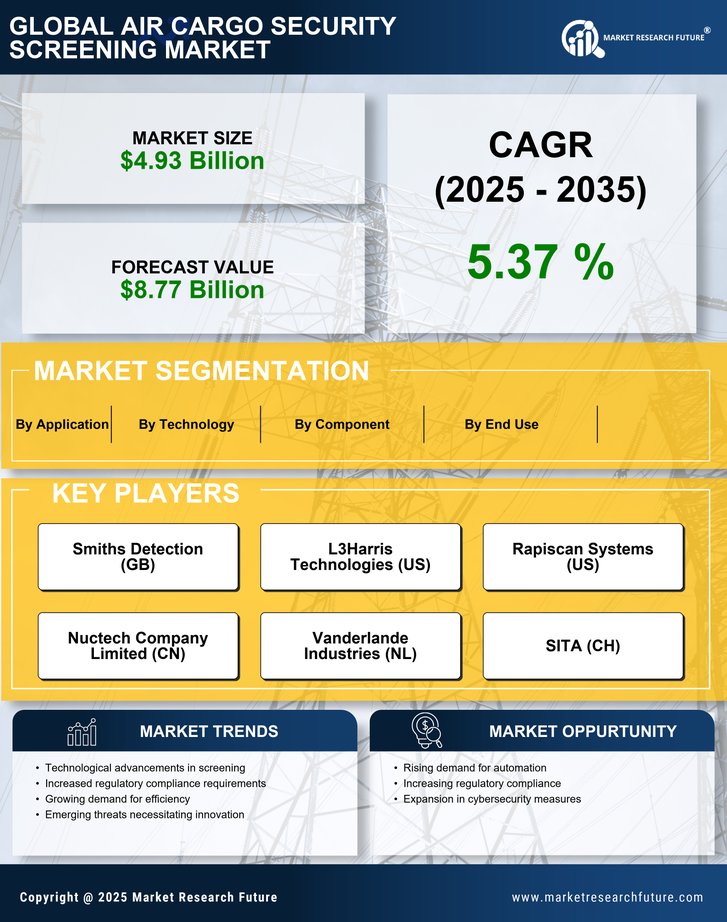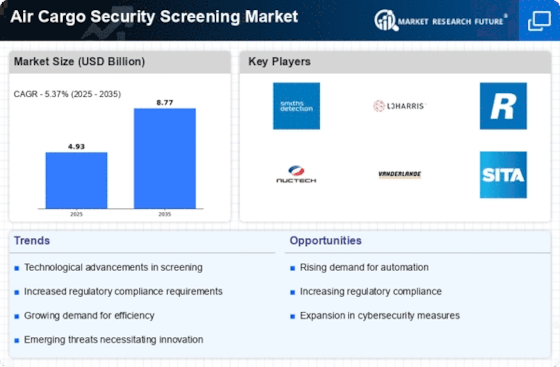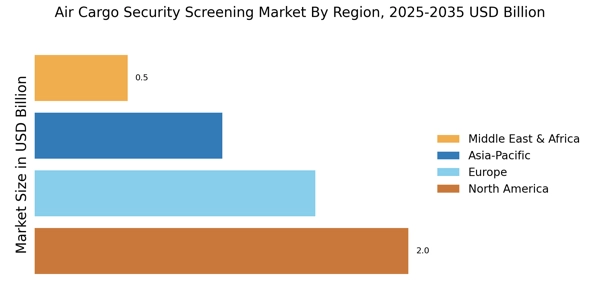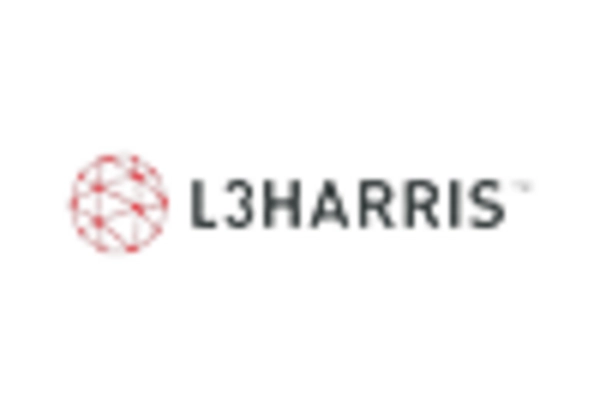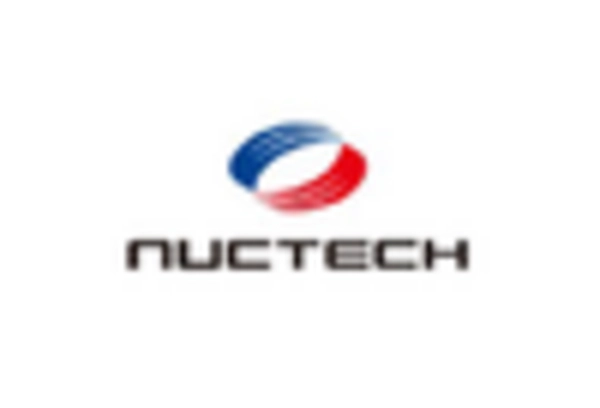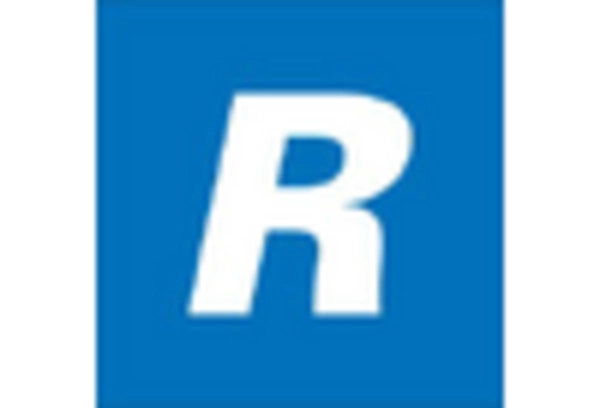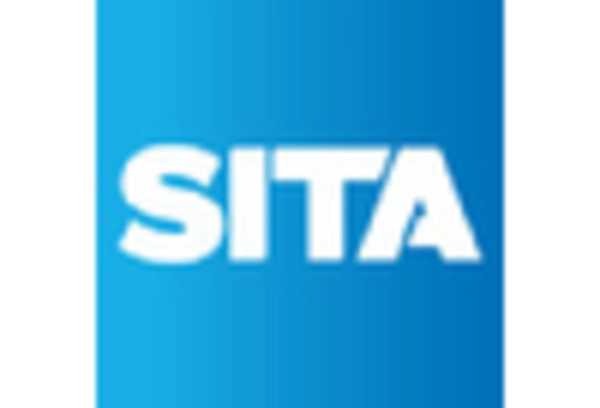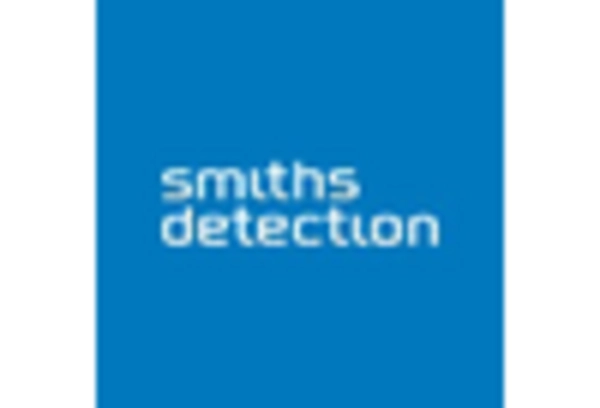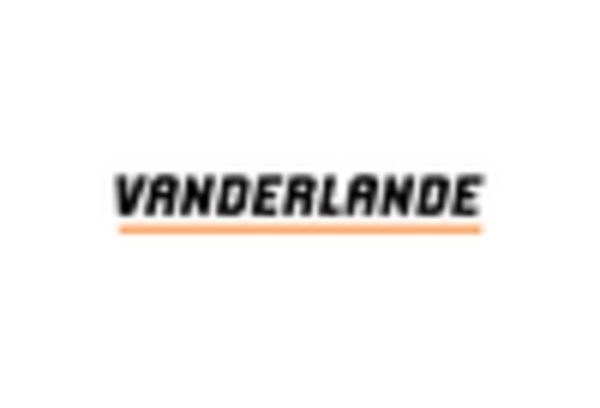Technological Innovations in Screening Equipment
The air cargo security screening Market is experiencing a surge in technological innovations, particularly in screening equipment. Advanced technologies such as artificial intelligence and machine learning are being integrated into screening systems, enhancing their ability to detect threats. For instance, automated screening systems can analyze cargo more efficiently, reducing the time required for inspections. The market for these advanced systems is projected to grow significantly, with estimates suggesting a compound annual growth rate of over 10% in the coming years. This trend indicates a shift towards more sophisticated security measures, which are essential for maintaining safety in air cargo operations.
Regulatory Compliance and International Standards
Regulatory compliance plays a crucial role in shaping the Air Cargo Security Screening Market. Various international standards, such as those set by the International Civil Aviation Organization (ICAO), mandate stringent security measures for air cargo. Compliance with these regulations is not only essential for operational legitimacy but also for maintaining customer trust. As regulations evolve, air cargo operators are compelled to upgrade their screening technologies and processes, which in turn drives market growth. The need for compliance ensures that security screening remains a priority, fostering innovation and investment in the sector.
Heightened Security Concerns and Threat Perception
The Air Cargo Security Screening Market is significantly influenced by heightened security concerns and the evolving threat landscape. Recent incidents have underscored the necessity for robust security measures in air cargo operations. As threats become more sophisticated, regulatory bodies are likely to impose stricter security requirements, compelling air cargo operators to invest in advanced screening technologies. This trend suggests that the market for security screening solutions will continue to expand, as stakeholders prioritize the safety of air transport and seek to mitigate potential risks associated with cargo shipments.
Collaboration Between Stakeholders in the Supply Chain
Collaboration among stakeholders in the supply chain is increasingly influencing the Air Cargo Security Screening Market. Effective communication and partnership between airlines, freight forwarders, and security agencies are essential for enhancing security protocols. This collaborative approach allows for the sharing of best practices and intelligence regarding potential threats. As stakeholders work together to streamline security processes, the overall efficiency of air cargo operations improves. This trend suggests that the market for security screening solutions will benefit from enhanced cooperation, leading to more effective and comprehensive security measures across the industry.
Increasing Demand for E-commerce and Air Cargo Services
The rise in e-commerce has led to a notable increase in air cargo services, thereby driving the Air Cargo Security Screening Market. As online shopping continues to expand, the volume of goods transported by air is expected to rise, necessitating enhanced security measures. Reports indicate that air cargo volumes have increased by approximately 5% annually, highlighting the need for efficient screening processes. This growing demand places pressure on security screening providers to innovate and improve their systems, ensuring that they can handle the increased cargo flow while maintaining high security standards.
